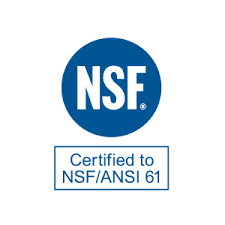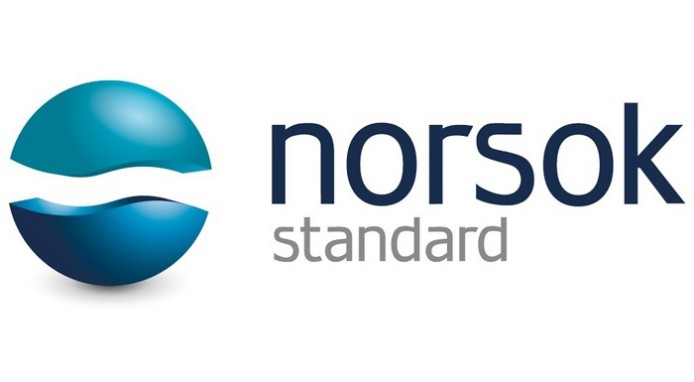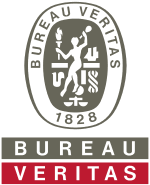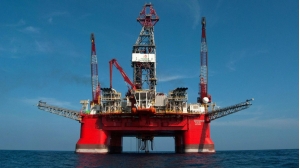EPOXY MULTI-PURPOSE PRIMER EP-116
Specification Data | |||||||||||||||||||||||||
| Product Number Type | EP-116 The two-pack, universal anticorrosion primer based on epoxy resin, hardener and special pigments. | ||||||||||||||||||||||||
| Uses | Used for the new building system or the maintenance system, including ship’s all areas such as ballast tank, underwater hull, topside, deck, cargo tank, oil tank, superstructure, interior etc. Also used for anticorrosion engineering of steel structure such as chemical factories, bridges, power plants, inlet and outlet pipes, drains and sewers etc. | ||||||||||||||||||||||||
| Characteristics | 1. Simplified procedure, convenient application, unique long terms anticorrosive performance. 2. Excellent anticorrosion and adhesion, widely used for shop primer, steel plate (sand-blasted or mechanical surface preparation), aluminum, stainless steel, galvanized steel etc. 3. Can be coated with epoxy or polyurethane paint well. 4. Excellent resistance to mechanical damage. 5. Excellent resistance to sea water and corrosion, suitable for steel and non-ferrous metal. 6. Easy application, very fast drying, available for all year round. | ||||||||||||||||||||||||
| Color | Yellowish Green, Grey, Red Oxide | ||||||||||||||||||||||||
| Finish Density Viscosity | Flat Above 1.3Kg/L Approx. 120KU (mixture, 25℃) | ||||||||||||||||||||||||
| VOC Values Volume Solids | 402 g/L. 60%(mixture) | ||||||||||||||||||||||||
| Theoretical Coverage | 30.3 m2/Gal (325.9 ft2/Gal)8.0 m2/L (86.1ft2/L)(Dry film=3mils) | ||||||||||||||||||||||||
| Dry Film Thickness Subsequent Coats | 3~8 mils (75~200 microns) Epoxy, Polyurethane (UP-450, UP-04), Acrylic, Chlorinated Rubber, Vinyl or Fire-retardant Paint | ||||||||||||||||||||||||
| Repair Overcoating Intervals
| Self Repairing Overcoating table for two-pack type epoxy paint:
| ||||||||||||||||||||||||
Performance Data
| System | Results | |
| ISO 20340-09 Ageing test | Blasted Steel 1 ct. EP-116 (50 microns) 1 ct. UP-204 (30 microns) 1 ct. UP-100 (1200 microns) 1 ct. NO.54HB (60 microns) | Pin holes: No pinholes Adhesion unexposed: 7.3 MPa (ISO 4624-02) Adhesion: 10.3 MPa (ISO 4624-02) No blistering (ISO 4628-2-03) No rusting (ISO 4628-3-03) No cracking (ISO 4628-4-03) No flaking (ISO 4628-5-03) Chalking rating: 1 (ISO 4628-6-03) Corrosion: 5.49 mm |
| ISO 20340-09 Ageing test | Blasted Steel 1 ct. EP-116 (50 microns) 1 ct. UP-204 (30 microns) 1 ct. UP-100 (1200 microns) | Pin holes: No pinholes Adhesion unexposed: 7.3 MPa (ISO 4624-02) Adhesion: 11.7 MPa (ISO 4624-02) No blistering (ISO 4628-2-03) No rusting (ISO 4628-3-03) No cracking (ISO 4628-4-03) No flaking (ISO 4628-5-03) Corrosion: 4.38 mm |
| ISO 2812-2-07 Sea water immersion test | Blasted Steel 1 ct. EP-116 (50 microns) 1 ct. UP-204 (30 microns) 1 ct. UP-100 (1200 microns) | Pin holes: No pinholes Adhesion unexposed: 7.3 MPa (ISO 4624-02) Adhesion: 10.9 MPa (ISO 4624-02) No blistering (ISO 4628-2-03) No rusting (ISO 4628-3-03) No cracking (ISO 4628-4-03) No flaking (ISO 4628-5-03) Corrosion: 2.31 mm |
| ISO 15711-03 Cathodic disbanding test method A | Blasted Steel 1 ct. EP-116 (50 microns) 1 ct. UP-204 (30 microns) 1 ct. UP-100 (1200 microns) | Pin holes: No pinholes Adhesion unexposed: 7.3 MPa (ISO 4624-02) Adhesion: 11.6 MPa (ISO 4624-02) No blistering (ISO 4628-2-03) No rusting (ISO 4628-3-03) No cracking (ISO 4628-4-03) No flaking (ISO 4628-5-03) Disbonding: 0 mm |
| ISO 2812-2-07 Sea water immersion test | Blasted Steel 1 ct. EP-116 (60 microns) 2 ct. EP-988 (240 microns) 1 ct. NO.54HB (60 microns) | Pin holes: No pinholes Adhesion unexposed: 14.9 MPa (ISO 4624-02) Adhesion: 18.1 MPa (ISO 4624-02) No blistering (ISO 4628-2-03) No rusting (ISO 4628-3-03) No cracking (ISO 4628-4-03) No flaking (ISO 4628-5-03) Corrosion: 2.94 mm |
| ISO 15711-03 Cathodic disbanding test method A | Blasted Steel 1 ct. EP-116 (60 microns) 2 ct. EP-988 (240 microns) 1 ct. NO.54HB (60 microns) | Pin holes: No pinholes Adhesion unexposed: 14.9 MPa (ISO 4624-02) Adhesion: 14.0 MPa (ISO 4624-02) No blistering (ISO 4628-2-03) No rusting (ISO 4628-3-03) No cracking (ISO 4628-4-03) No flaking (ISO 4628-5-03) Disbonding: 0 mm |
| Test Method | System | Results |
| ISO 2812-2-07 Sea water immersion test | Blasted Steel 1 ct. EP-116 (60 microns) 2 ct. EP-988 (270 microns) | Pin holes: No pinholes Adhesion unexposed: 19.9 MPa (ISO 4624-02) Adhesion: 22.4 MPa (ISO 4624-02) No blistering (ISO 4628-2-03) No rusting (ISO 4628-3-03) No cracking (ISO 4628-4-03) No flaking (ISO 4628-5-03) Corrosion: 3.43 mm |
| ISO 15711-03 Cathodic disbanding test method A | Blasted Steel 1 ct. EP-116 (60 microns) 2 ct. EP-988 (270 microns) | Pin holes: No pinholes Adhesion unexposed: 19.9 MPa (ISO 4624-02) Adhesion: 19.1 MPa (ISO 4624-02) No blistering (ISO 4628-2-03) No rusting (ISO 4628-3-03) No cracking (ISO 4628-4-03) No flaking (ISO 4628-5-03) Disbonding: 0 mm |
Test reports and additional data available upon written request.
Certification
˙NORSOK M-501, Rev.6, System NO.1(EP-116+UP-204+UP-100+NO.54HB) :
DNVGL Type Examination Certificate: Certificate Number K-6347 Date 12 JUN 2015
CCS-DNV Technical Report: Report Number CDTI-CL-15F009 Date 03 APR 2015
˙NORSOK M-501, Rev.6, System NO.7A (EP-116+UP-204+UP-100):
DNVGL Type Examination Certificate: Certificate Number K-6343 Date 12 JUN 2015
CCS-DNV Technical Report: Report Number CDTI-CL-15F005 Date 07 APR 2015
˙NORSOK M-501, Rev.6, System NO.7B (EP-116+EP-988+NO.54HB):
DNVGL Type Examination Certificate: Certificate Number K-6346 Date 12 JUN 2015
CCS-DNV Technical Report: Report Number CDTI-CL-15F008 Date 07 APR 2015
˙NORSOK M-501, Rev.6, System NO.7B (EP-116+EP-988):
DNVGL Type Examination Certificate: Certificate Number K-6344 Date 12 JUN 2015
CCS-DNV Technical Report: Report Number CDTI-CL-15F006 Date 03 APR 2015
Application Instruction
˙Surface preparation
| General | Remove dirt, dust, oil and all other contaminants that could interfere with adhesion of the coating. Surfaces must be clean and dry. Moisture, grease, sludge, dust, corrosive salt must be thoroughly cleaned from substrate. |
| Steel
Primed Surfaces
Areas of Breakdown and Damage | Surface preparation standards can use SSPC-SP10 or Sa2 1/2 (ISO 8501-1:2007). EP-116 should always be applied over a recommended anti-corrosive coating scheme. The primer surface should be dry and free from all contamination and EP-116 must be applied within the overcoating intervals specified (consult the relevant product data sheet). It should be prepared to the specified standard (Sa2 1/2 (ISO 8501-1:2007) or SSPC-SP6, Abrasive Blasting or SSPC-SP11, Power Tool Cleaning) and patch primed prior to the application of EP-116. |
˙Mixing & Thinning
| Mixing Thinning Mixing Ratio Pot life | Mix base and hardener according to the mixing ratio and stir thoroughly. Use Epoxy Thinner (SP-12) to thin up 5-10%. Base : Hardener = 80 : 20 (by volume) 86 : 14(by weight.) 6 hrs at 25℃( mixture, 77℉) |
˙Equipment
| Spray Application
Airless Spray
Brush
Roller | Avoid applying the paint in rainy weather or the relative humidity exceed 85%, particularly, a wet surface must be thoroughly dried. All equipment must be cleaned immediately after use. To increase or decrease the usage of thinner depending on the temperature of the coated surface, the temperature decreased may have to add more amount of thinner Pump ratio 60:1 or greater Tip size : 0.029’’~ 0.035’’ Input PSI: 85Output PSI : 2800~4000. Thinning rate: 0~10%. Application by brush is applicable. Thinning rate: 0~5%. For special condition please consult with product manufacturer. Application by brush is applicable. Thinning rate: 0~5%. For special condition please consult with product manufacturer. |
˙Environment conditions
| Condition | Coating | Surface | Environment | Humidity |
| Minimum | 10℃ (50℉) | 10℃ (50℉) | 10℃ (50℉) | 30% |
| Maximum | 35℃ (95℉) | 55℃ (131℉) | 45℃ (113℉) | 85% |
Industry standards are for substrate temperatures to be 3℃(5℉) above the dew point . the product simply requires
the substrate temperature to be above the dew point.
˙Curing Schedule
| Surface Temp. & 50% Relative Humidity | Dry to Handle | Dry Hard |
| 10℃ (50℉) | 6 hours | 24 hours |
| 15℃ (59℉) | 3 hours | 16 hours |
| 25℃ (77℉) | 1.5 hours | 4 hours |
| 35℃ (95℉) | 1 hours | 2 hours |
˙Cleanup & Safety
| Cleanup
Safety Ventilation | Use Epoxy Thinner (SP-12) to clean. In case of spillage, absorb and dispose of in accordance with local applicable regulations. Please read and follow all caution statements on this product data sheet and SDS for this product. Proper ventilation and protective measures must be provided during application and drying to keep solvent vapor concentrations within safe limits and to protect against toxic or oxygen deficient hazards. |
˙Package, Handling & Storage
| Shelf Life
Shipping Weight
Storage Temperature & Humidity Flash Point Storage | Part A :Minimum 2 years under normal storage conditions Part B :Minimum 1 years under normal storage conditions Part A : 1 Gallon - 4.2kg5 Gallon - 21.0kg Part B : 1 Gallon - 0.7kg5 Gallon - 3.5kg 5-35℃ (41-95℉) 0-90% Relative Humidity 26℃ Store in cool ventilated place, do not exposed to the sun in outdoor to avoid affecting the quality. |

|

|

|

|
 |

|

|

|


